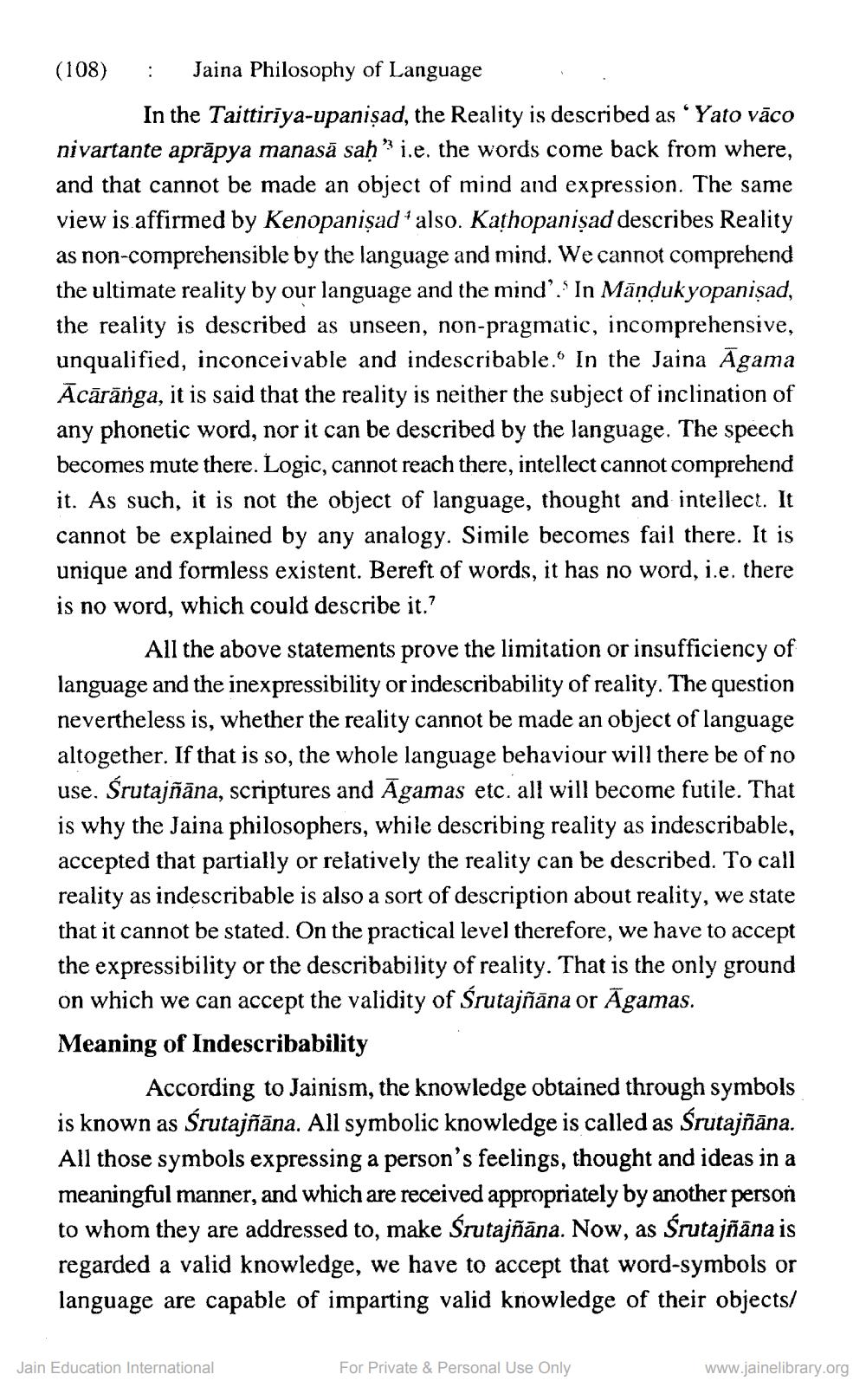________________
(108) : Jaina Philosophy of Language
In the Taittiriya-upanisad, the Reality is described as “Yato vāco nivartante aprāpya manasā saħ” i.e. the words come back from where, and that cannot be made an object of mind and expression. The same view is affirmed by Kenopanişad - also. Kathopanişad describes Reality as non-comprehensible by the language and mind. We cannot comprehend the ultimate reality by our language and the mind'. In Māndukyopanişad, the reality is described as unseen, non-pragmatic, incomprehensive, unqualified, inconceivable and indescribable. In the Jaina Āgama Ācārānga, it is said that the reality is neither the subject of inclination of any phonetic word, nor it can be described by the language. The speech becomes mute there. Logic, cannot reach there, intellect cannot comprehend it. As such, it is not the object of language, thought and intellect. It cannot be explained by any analogy. Simile becomes fail there. It is unique and formless existent. Bereft of words, it has no word, i.e. there is no word, which could describe it.?
All the above statements prove the limitation or insufficiency of language and the inexpressibility or indescribability of reality. The question nevertheless is, whether the reality cannot be made an object of language altogether. If that is so, the whole language behaviour will there be of no use. Śrutajñāna, scriptures and Āgamas etc. all will become futile. That is why the Jaina philosophers, while describing reality as indescribable, accepted that partially or relatively the reality can be described. To call reality as indescribable is also a sort of description about reality, we state that it cannot be stated. On the practical level therefore, we have to accept the expressibility or the describability of reality. That is the only ground on which we can accept the validity of Śrutajñāna or Āgamas. Meaning of Indescribability
According to Jainism, the knowledge obtained through symbols is known as Śrutajñāna. All symbolic knowledge is called as Śrutajñāna. All those symbols expressing a person's feelings, thought and ideas in a meaningful manner, and which are received appropriately by another person to whom they are addressed to make Śrutajñāna. Now, as Śrutajñāna is regarded a valid knowledge, we have to accept that word-symbols or language are capable of imparting valid knowledge of their objects/
Jain Education International
For Private & Personal Use Only
www.jainelibrary.org




